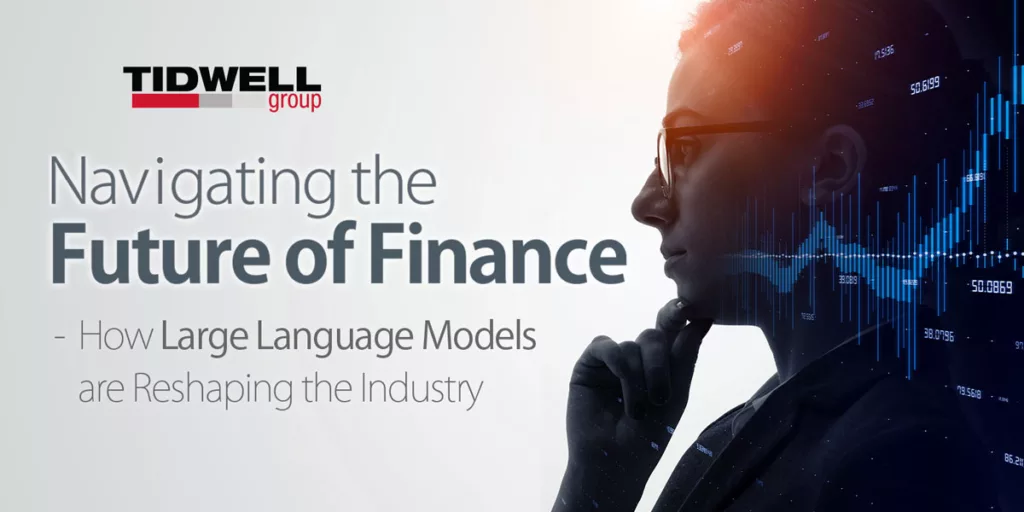By Wayne Jordan, CCNA, MCITP
Understanding Large Language Models (LLMs):
LLMs are AI models that generate human-like text based on the input they receive. They excel at various tasks, including content generation, answering questions, and writing code. LLMs are trained on vast amounts of data and offer meaningful insights and solutions across industries, including finance and accounting. In fact, ChatGPT recently demonstrated its proficiency by passing the CPA exam. LLMs improve accuracy and reduce errors in Excel formulas and Python scripts, minimizing mistakes and ensuring reliability. These programs also enhance speed and efficiency by automating repetitive tasks, allowing professionals to focus on high-value activities to maintain a competitive edge.
LLMs assist financial experts in developing predictive models and simulations, yielding valuable insights for informed decision-making. They can identify trends, risks, and opportunities, optimizing financial strategies. AI-powered tools are known for customization and adaptability, adjusting their formulas and code as data and requirements change. This is particularly useful in finance, where staying current is crucial.
Tomorrow’s Accounting and Financial Superstars Will Leverage Python and LLMs.
Python is a versatile programming language that easily integrates with tools and platforms in finance and accounting. Finance professionals don’t need to be expert programmers to use Python effectively. By learning the fundamentals of Python and having the ability to read and follow its logic, everyday professionals can leverage LLMs for code generation and task automation that would have historically required a much more skilled programmer.
This collaboration between the professional and LLM leads to efficient, accurate results while maintaining control over output and customization. As LLMs become more prevalent, demand for Python skills will grow, making it a valuable skill for business professionals. Python helps automate processes and analyze data efficiently. Its rich ecosystem of libraries, like NumPy, pandas, and scikit-learn, to name a few, enables advanced data analysis and modeling tasks such as automating data processing, generating financial models, and analyzing trends using custom solutions.
Other Innovative Uses of LLMs in Finance and Accounting:
LLMs have the potential to revolutionize the financial sector in numerous other ways. AI-powered tools can analyze vast amounts of data to uncover hidden patterns and trends that would have been impossible with previous technologies. This enables finance professionals to make better-informed decisions and develop more effective strategies. For instance, they can be used for risk assessment and management, helping organizations identify potential risks and make informed decisions about mitigating them. LLMs can also play a crucial role in fraud detection and prevention. By analyzing data and identifying anomalies or suspicious transactions, AI-powered systems can alert financial experts to potential fraud, allowing them to take swift action to protect their organization’s assets.
Moreover, LLMs can streamline the audit process, automating time-consuming tasks such as data collection, analysis, and identifying areas of potential concern. This makes the auditing process more efficient and allows auditors to focus on more complex tasks requiring personal experience and expertise.
The Importance of Data Security and Protection in the Age of AI:
As organizations increasingly rely on LLMs, it is essential to remain vigilant about data security. When uploading sensitive or proprietary information to online services, professionals in the financial sector must understand the risks associated with sharing data online and take necessary precautions to protect their organization’s and clients’ valuable information.
One critical best practice to ensure data privacy and security is data sanitization. Data sanitization is scrubbing sensitive information from data sets before uploading them to online services. It can involve masking or anonymizing data, ensuring that any personally identifiable information (PII) or confidential business information is not exposed while working with AI-powered tools.
By maintaining strict data security protocols and adhering to industry best practices, we can leverage the immense potential of LLMs while minimizing the risks associated with handling sensitive data. If you have questions on appropriate usage or the types of data that should not be uploaded to web services not provided by your company, please contact your corporate IT team.
Where AI Falls Short Today
While today’s LLMs possess incredible capabilities, it is essential to recognize their limitations and potential pitfalls. One notable concern is the possibility of LLMs making mistakes or even fabricating responses. Despite being trained on vast amounts of data, LLMs may not always provide accurate or reliable information. They will occasionally generate responses based on incorrect data, misunderstood context, or a failure to consider all relevant factors.
Additionally, LLMs might produce seemingly plausible yet entirely fabricated information, as their primary goal is to generate coherent and contextually relevant text rather than verify the information’s accuracy.
Financial professionals using LLMs in their work must exercise caution when relying on the outputs generated by these models. It is essential to cross-check and verify the information provided by LLMs, especially when making critical decisions that could significantly impact an organization’s financial health and the reliable delivery of outcomes. By understanding the limitations of LLMs and applying critical thinking and professional judgment, we can harness the power of AI while minimizing the risks associated with inaccurate or fabricated information.
Conclusion:
AI and LLMs, in particular, have the potential to transform the finance and accounting sector by automating routine tasks, enhancing data analysis, and improving decision-making. While the benefits of LLMs in writing formulas for Excel and creating Python scripts are evident, I’m excited to see what other uses are adopted to transform how we get things done in the industry. As we increasingly adopt AI and Python, it is crucial to emphasize the importance of data security and privacy as well as accuracy. By harnessing the power of AI and LLMs responsibly, the finance and accounting sector can experience significant advancements, leading to a more efficient and successful future.
Acknowledgment: Some content (10%) of this article was created with the assistance of OpenAI’s GPT-4.










